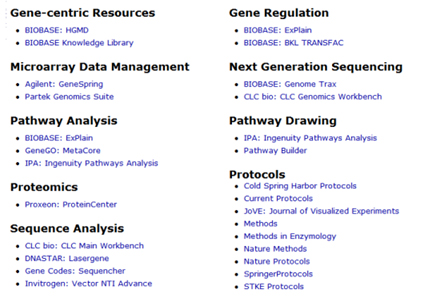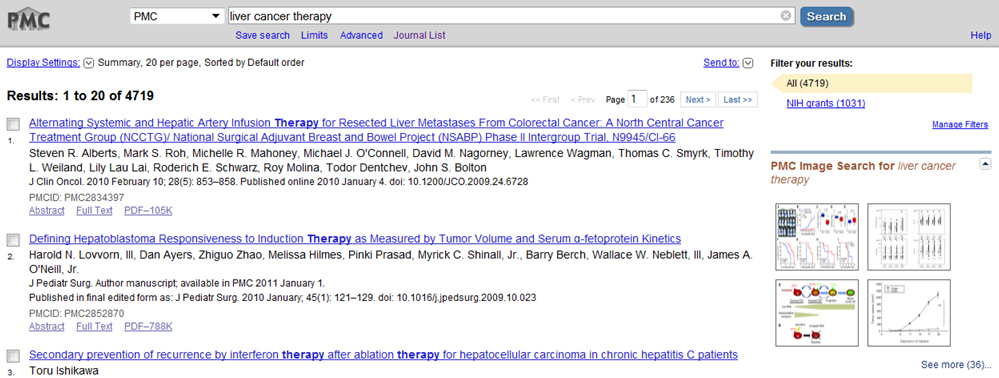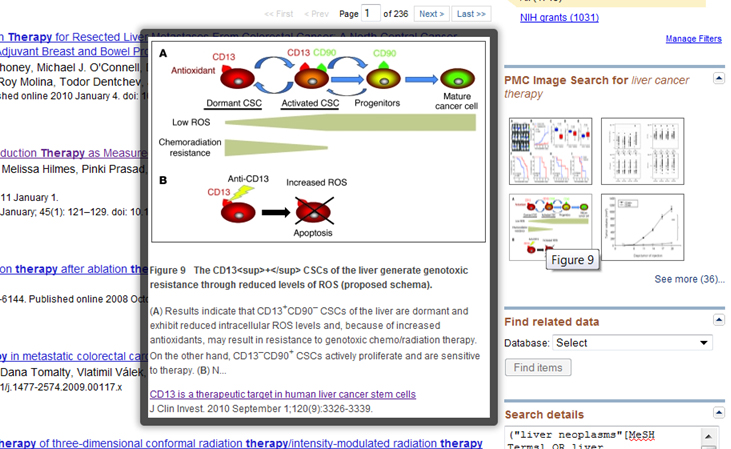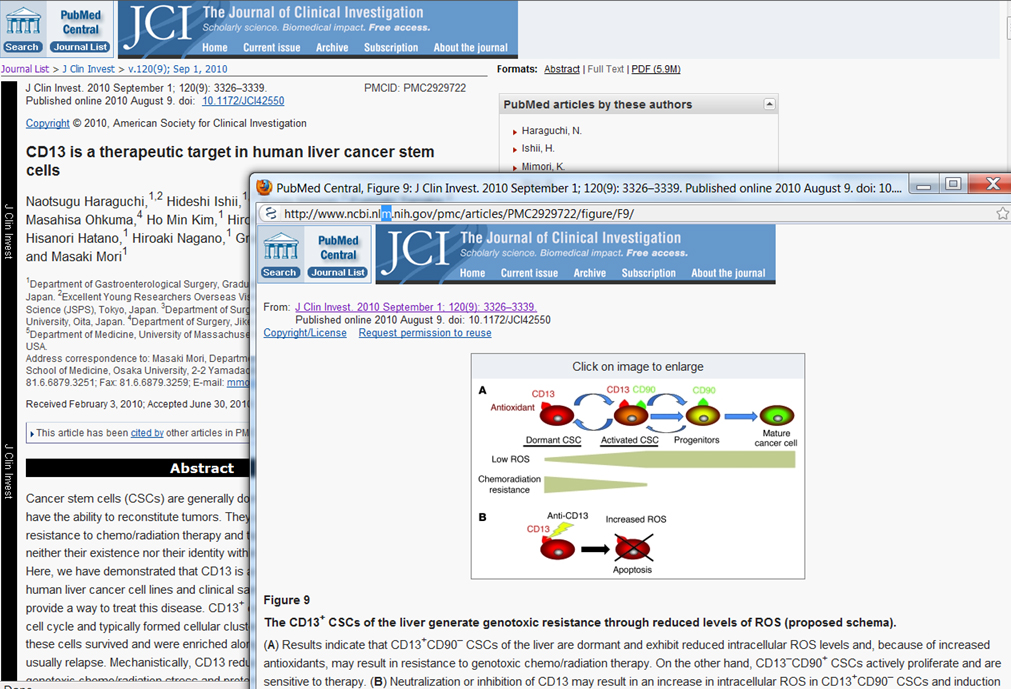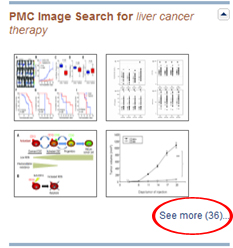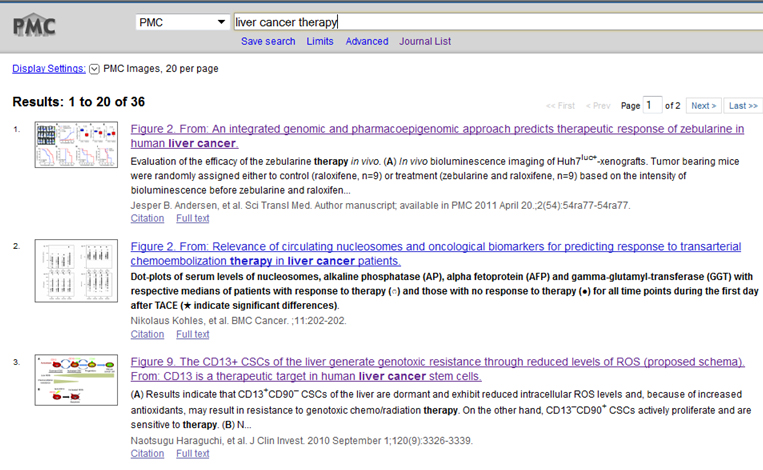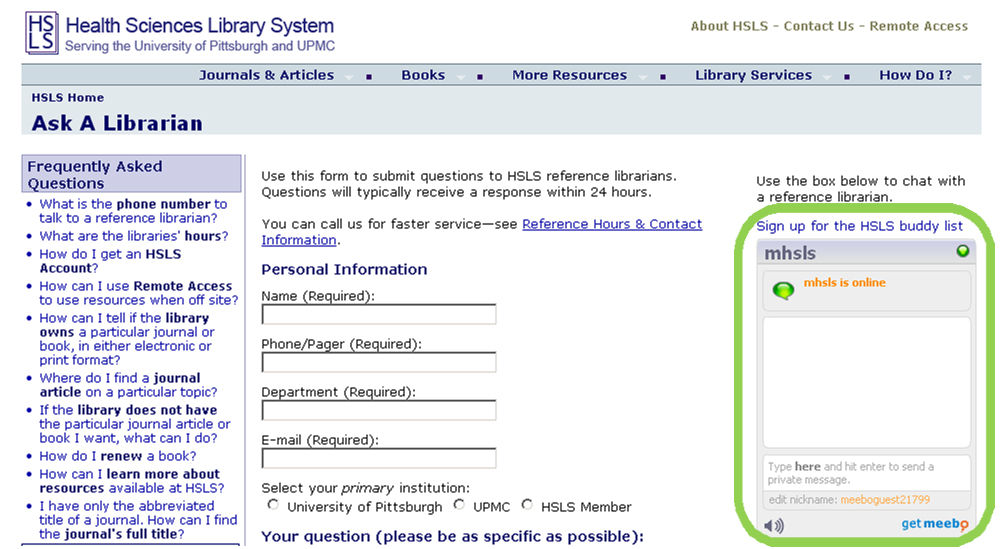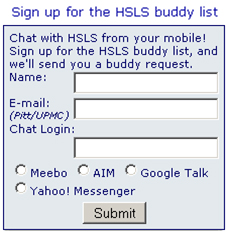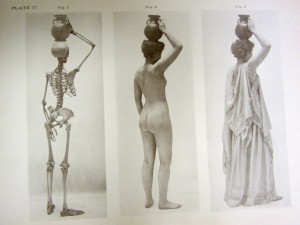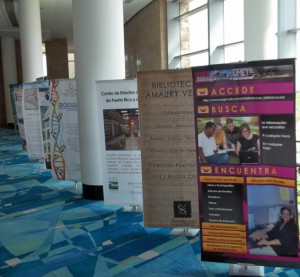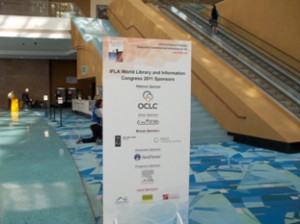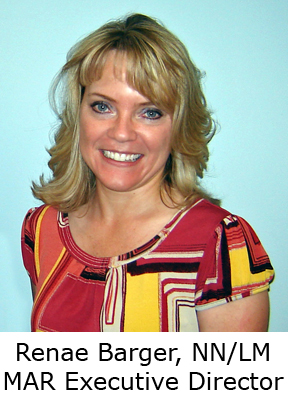HSLS offers classes on database searching, software applications such as Adobe Photoshop, bibliographic management, molecular biology and genetics, and library orientations. For more information visit the online course descriptions.
Classes are held on the first floor of Falk Library (200 Scaife Hall) in Classroom 1 and Conference Room B, and on the second floor in the Computer and Media Center Classroom 2. Some classes are also held in the Conference Room at UPMC Shadyside Libraries. All classes are open to faculty, staff and students of the schools of the health sciences at the University of Pittsburgh and UPMC.
No registration is required for any of these classes. Seating for classes is first-come, first-served, until the class is full. Classes marked with an asterisk (*) qualify for American Medical Association Category 2 continuing education credit.
Class schedules are subject to change. Please consult the online class calendar for the most current information.
HSLS ORIENTATION
Introduction to HSLS Resources and Services at Falk Library
(Meet inside entrance to Library)
Offered upon request to groups or individuals. Call 412-648-8866.
Introduction to HSLS Services at UPMC Shadyside
Offered upon request to groups or individuals. Call 412-623-2415.
Finding Full-Text Articles at UPMC Shadyside
Offered upon request to groups or individuals. Call 412-623-2415.
SEARCHING DATABASES
PubMed Basics* (Falk Library Classroom 1)
| Wednesday, November 16 |
2-3:30 p.m. |
| Friday, December 2 |
9-10:30 a.m. |
Focus on Behavioral Medicine: Searching in PsycINFO (Falk Library Classroom 1)
| Friday, November 18 |
10:30 a.m.-noon |
MOLECULAR BIOLOGY AND GENETICS RESOURCES
Lasergene* (Falk Library Classroom 2)
| Wednesday, November 2 |
1-3 p.m. |
Sequence Similarity Searching* (Falk Library Classroom 2)
| Wednesday, November 9 |
1-3 p.m. |
DNA Analysis Tools* (Falk Library Classroom 2)
| Wednesday, November 16 |
1-3 p.m |
Protein Sequence Analysis* (Falk Library Classroom 2)
| Wednesday, November 30 |
1-3 p.m. |
Microarray Data Analysis* (Falk Library Classroom 2)
| Wednesday, December 7 |
1-3 p.m. |
Proteomic Analysis: Protein Identification & Quantification* (Falk Library Classroom 2)
| Wednesday, December 14 |
1-3 p.m. |
SOFTWARE TRAINING
EndNote Basics (Falk Library Classroom 2)
(Note: This class is usually full. Please arrive 15 minutes in advance to ensure seating.)
| Tuesday, November 15 |
10 a.m-noon |
| Thursday, December 8 |
11:30 a.m.-1:30 p.m. |
Adobe Photoshop for Beginners (Falk Library Classroom 2)
| Tuesday, December 13 |
9-11 a.m. |
PowerPoint for Beginners (Falk Library Classroom 2)
| Tuesday, November 29 |
9-11 a.m. |
Advanced PowerPoint for Presentations(Falk Library Classroom 2)
| Thursday, December 8 |
9-11 a.m. |
The WOW Factor: PowerPoint for Posters(Falk Library Classroom 2)
| Thursday, November 17 |
9-11 a.m. |
Lunch With A Librarian
These informal, brown-bag lunches are held in Falk Library Conference Room B. Bring your own lunch. Drinks and dessert are provided. For more information visit the online descriptions.
Search Clinic
| Thursday, November 10 |
noon-1 p.m. |
Beyond Cochrane Reviews: Resources that Provide Evidence if Cochrane Doesn’t
| Tuesday, December 13 |
noon-1 p.m. |
Classes at UPMC Shadyside Libraries
Why use PubMed? (UPMC Shadyside Libraries)
| Tuesday, November 15 |
1-2 p.m. |
My NCBI: A PubMed Tool to Save You Time (UPMC Shadyside Libraries)
| Friday, December 2 |
11:30 a.m.-12:30 p.m. |
Advanced Google: Tips and Strategies for Getting More from Google (UPMC Shadyside Libraries)
| Tuesday, December 13 |
2-3 p.m. |
Software Training at UPMC Shadyside Libraries
Advanced PowerPoint for Presentations (UPMC Shadyside Libraries)
| Thursday, November 3 |
9-11 a.m. |
Thursday @ Three HSLS UPMC Shadyside Libraries Information Series
These informal sessions are held in the Conference Room at UPMC Shadyside Libraries.
Learn to be Creative. Jazz up your Fliers and Presentations
| Thursday, November 10 |
3-4 p.m. |
iPads in Medicine
| Thursday, December 1 |
3-4 p.m. |
CUSTOMIZED CLASSES
Customized classes can be developed for your department, course, or other group.
LEARNING @ YOUR PACE
These online tutorials provide information on getting started at HSLS, focusing on the Web site and popular resources.
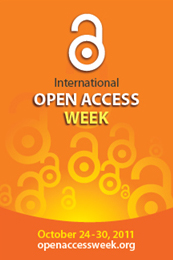 cus on author rights during International Open Access Week, October 24-30, 2011. Submitting scholarly research for publication requires careful consideration due to a wide range of access models and mandates, including Open Access and the NIH Public Access Policy. HSLS is committed to providing the information resources necessary to help authors navigate these new publishing options.
cus on author rights during International Open Access Week, October 24-30, 2011. Submitting scholarly research for publication requires careful consideration due to a wide range of access models and mandates, including Open Access and the NIH Public Access Policy. HSLS is committed to providing the information resources necessary to help authors navigate these new publishing options.
